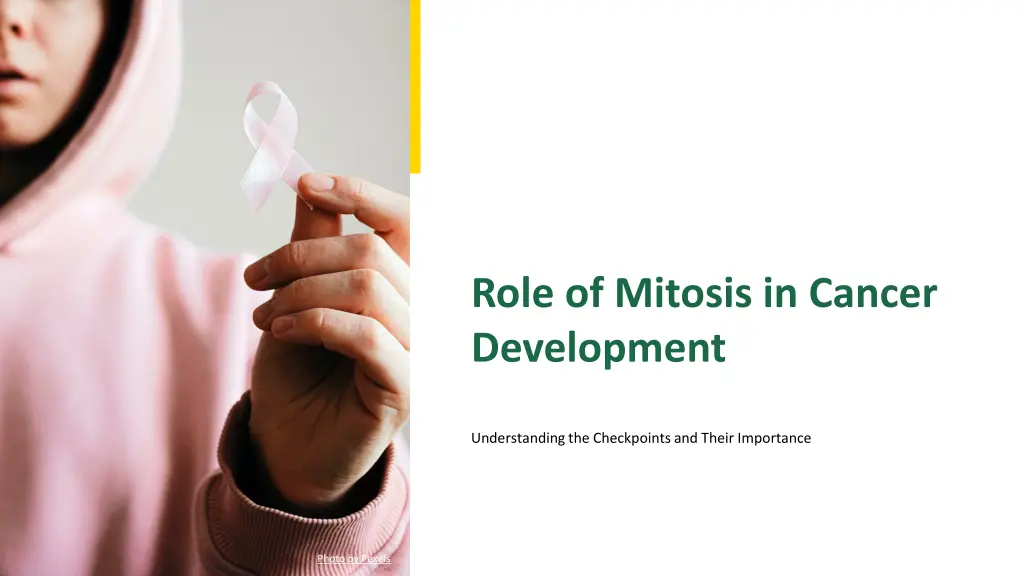
Understanding Mitosis in Cancer Development: Checkpoints & Therapies
Explore the role of mitosis in cancer development, focusing on the importance of checkpoints and emerging strategies in therapy. Discover how failures in mitotic checkpoints can lead to cancer and the current inhibitors in clinical development targeting mitotic processes. Stay informed on the future perspectives of cancer research and therapy.
Download Presentation

Please find below an Image/Link to download the presentation.
The content on the website is provided AS IS for your information and personal use only. It may not be sold, licensed, or shared on other websites without obtaining consent from the author. If you encounter any issues during the download, it is possible that the publisher has removed the file from their server.
You are allowed to download the files provided on this website for personal or commercial use, subject to the condition that they are used lawfully. All files are the property of their respective owners.
The content on the website is provided AS IS for your information and personal use only. It may not be sold, licensed, or shared on other websites without obtaining consent from the author.
E N D
Presentation Transcript
Role of Mitosis in Cancer Development Understanding the Checkpoints and Their Importance Photo by Pexels
01 Introduction to Mitosis and Cancer Table of Contents 02 The Post-Mitotic Checkpoint 03 Emerging Strategies in Cancer Therapy 04 Inhibitors in Clinical Development 05 Conclusion and Future Perspectives
1 Introduction to Mitosis and Cancer The Connection Between Cell Division and Cancer Mitosis is a process of cell division that results in two genetically identical daughtercells. Cancer occurs when cells divide uncontrollably, often due to failures in mitotic checkpoints. Checkpoints in mitosis ensure proper cell division and prevent abnormal cells from proliferating. Understanding mitosis in cancer can lead to better therapeutic strategies. Photo by Pexels
2 The Post-Mitotic Checkpoint Preventing Abnormal Cell Proliferation The post-mitotic checkpoint prevents daughter cells of abnormal mitosis from entering the next interphase. This checkpoint detects errors in mitosis and halts cell cycle progression. Failures in this checkpoint can lead to cancerous growths. Studying this checkpoint is crucial for developing cancer treatments. Photo by Pexels
3 Emerging Strategies in Cancer Therapy Targeting Mitotic Components Mitotic components are targeted for cancer therapy to prevent cell division. Microtubule-targeting agents and mitotic inhibitors are used in clinical settings. These therapies can have side effects, requiring careful management. Research is ongoing to improve the efficacy and safety of these treatments. Photo by Pexels
4 Inhibitors in Clinical Development Focus on PLK4 and Mps1 PLK4 inhibitors are being developed to target mitotic processes in cancer cells. Mps1 inhibitors aim to disrupt mitotic checkpoints and prevent cancer cell division. These inhibitors are currently undergoing clinical trials to assess their effectiveness. Successful inhibitors could provide new avenues for cancer treatment.
5 Conclusion and Future Perspectives The Path Forward in Cancer Research Understanding mitosis and its checkpoints is key to developing cancer therapies. Overcoming resistance and side effects remains a significant challenge. New strategies are needed to enhance treatment outcomes. Continued research and collaboration are essential for progress in cancer therapy. Photo by Pexels
